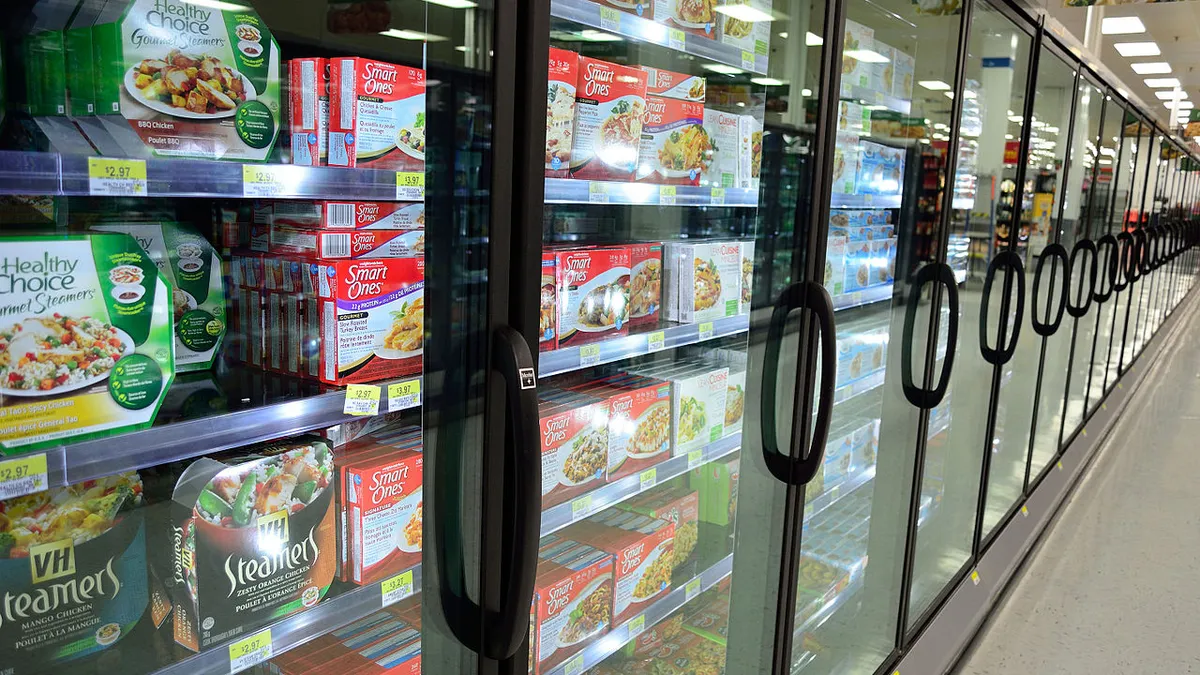Dive Brief:
- Retailers are testing out smart shelves and coolers with penny-sized cameras that collect information on shoppers and their purchases, according to the Associated Press. The technology is aimed at personalizing the shopping experience, but also raises questions about customer privacy.
- Kroger has placed cameras in two stores near Cincinnati and Seattle, which are embedded in price signs above shelves to play ads and show discounts. The cameras don't store data, though they can guess age and sex, Kroger told the AP.
- Walgreens has installed cooler doors that act as video screens with cameras and sensors at six stores in Chicago, New York, San Francisco and Bellevue, Washington. The doors display ads and the contents inside the cooler, and a camera can guess ages and track shoppers' eyes to see where they're looking, though Walgreens said that feature is currently disabled.
Dive Insight:
As technology gets more advanced, companies like Kroger and Walgreens are using these tools to compete with online retailers like Amazon that can record each click and voice order a shopper makes, how long they hover over certain items and which products are placed in their cart regardless of whether they complete the purchase.
In addition to delivering more personalized recommendations, some of the cameras' touted advantages include conserving energy because customers won't have to search products with cooler doors open and helping employees keep tabs on what needs to be restocked.
It's unsurprising that Kroger is one of the first retailers to navigate these uncharted waters. The grocer has made major investments in technological innovation in recent months, including a partnership with Microsoft to implement Kroger’s EDGE shelving system, which replaces traditional paper labeling with digital displays. Kroger is also piloting guided shopping through its Scan, Bag, Go app.
While these cameras creep out some shoppers, others could find the technology useful, according to a report from consumer research company Field Agent. The company conducted a mystery shop with 21 secret shoppers investigating the technology at select Walgreens locations. A handful of shoppers termed the cooler doors "innovative," "cool" and "informative," with 67% saying they had an excellent experience with them.
Privacy experts aren't on board with the idea of cameras in-store, according to the AP report. Although they have the potential to help consumers discover new products and discounts, cameras can also prey on consumers who display certain emotions such as confusion or temptation and can cause discriminatory practices including price adjustments for older shoppers.
Sam's Club CEO John Furner reported wariness of the technology, saying the most important thing is to make sure people aren't surprised by how stores are using their technology or data.












